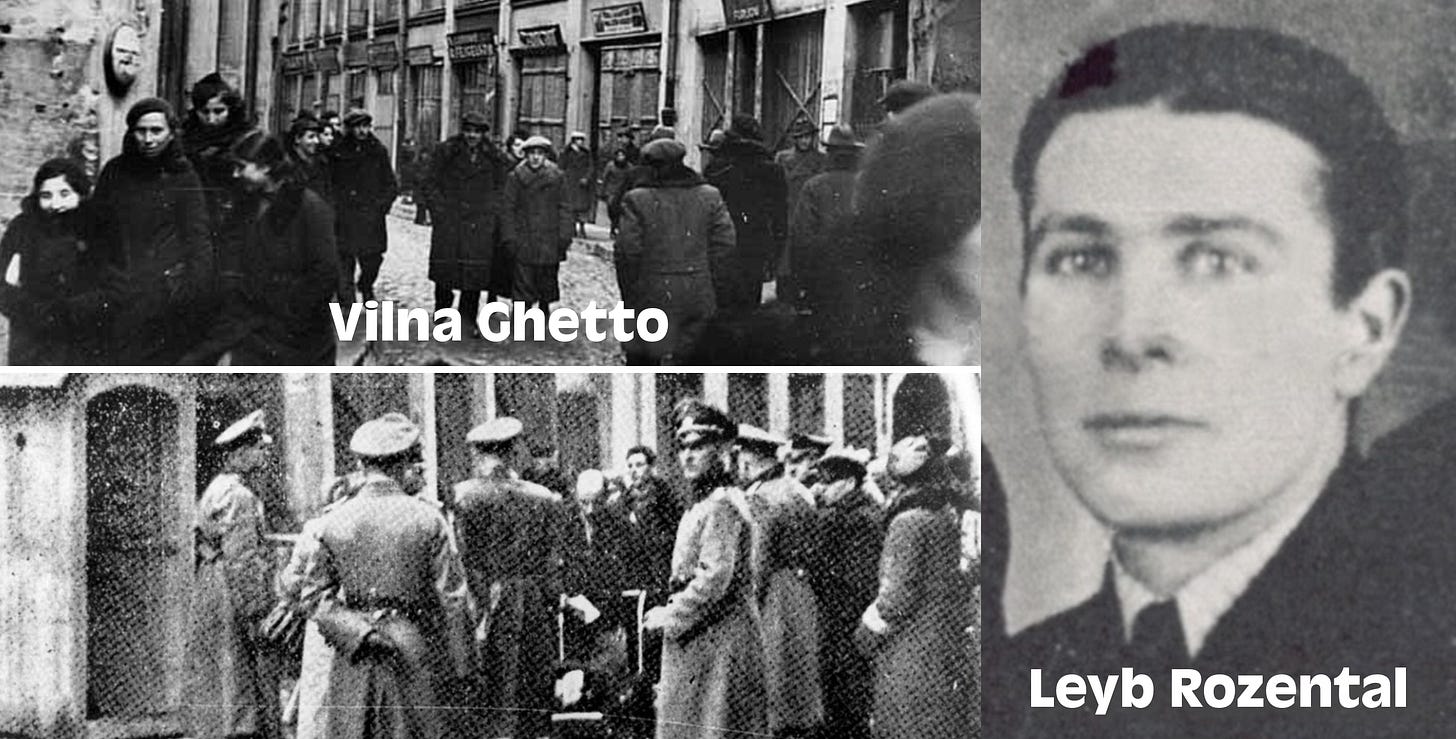An update and correction
Because facts and accuracy matter
I’ll keep this short but I feel like it’s important to share. When presenting Abe’s story about his Uncle Wolf and the song “Won’t Be Silent,” I glossed over an important detail.
Abe’s uncle Wolf wrote the music but his good friend, Leyb Rozental, a poet and writer, contributed the lyrics. Abe told me that in the interview but I didn’t give it the proper attention. However, Leyb’s niece, Zola, dropped me a note and gently pointed out my oversight. Her uncle Leyb was a giant in the Vilna community.
Now here’s where it gets interesting. Wolf and Leyb were both incarcerated in the Vilna Ghetto but each continued their creative work. That in itself is amazing and inspiring.
But Leyb’s lyrics for the song encouraged his fellow Jews to be silent. Why? I suspect it is because vocal protests not only drew unwelcome attention and punitive reprisals but to those who reveled in inflicting pain (the Nazis), the cries of the victim were perversely satisfying. So, Leyb encouraged his fellow Jews to suffer in silence while maintaining their dignity.
Seventy-five years later, we live in a different world. When we see oppression, we should speak up! And so when Abe brought Wolf and Leyb’s song back to life in 2017, he collaborated with the Grammy-nominated song writer Kara DioGaurdi to write new lyrics for the song. And her lyrics took the opposite path: don’t be silent! Speak up!
If you haven’t seen this short video of the new rendition of the song with DioGaurdi’s lyrics, it’s well worth your time.
Now, the “glue” that holds these two lyrical perspectives together begins with Wolf’s composition: it is heart rending and moving.
The two sets of lyrics, one from Leyb and the other from DioGuardi, call for two different approaches to oppression and suffering. To lightly paraphrase King Solomon, Pete Seeger, and Judy Collins, “there is a time to speak up and a time for silence.”
These two ideas, one for silence and the other for protest, are part of one of life’s many paradoxes. Each makes sense in a particular context.
Thank you, Zola, for highlighting the contribution of your uncle Leyb. And thank you Abe for bringing back to life the work of these great artists.



